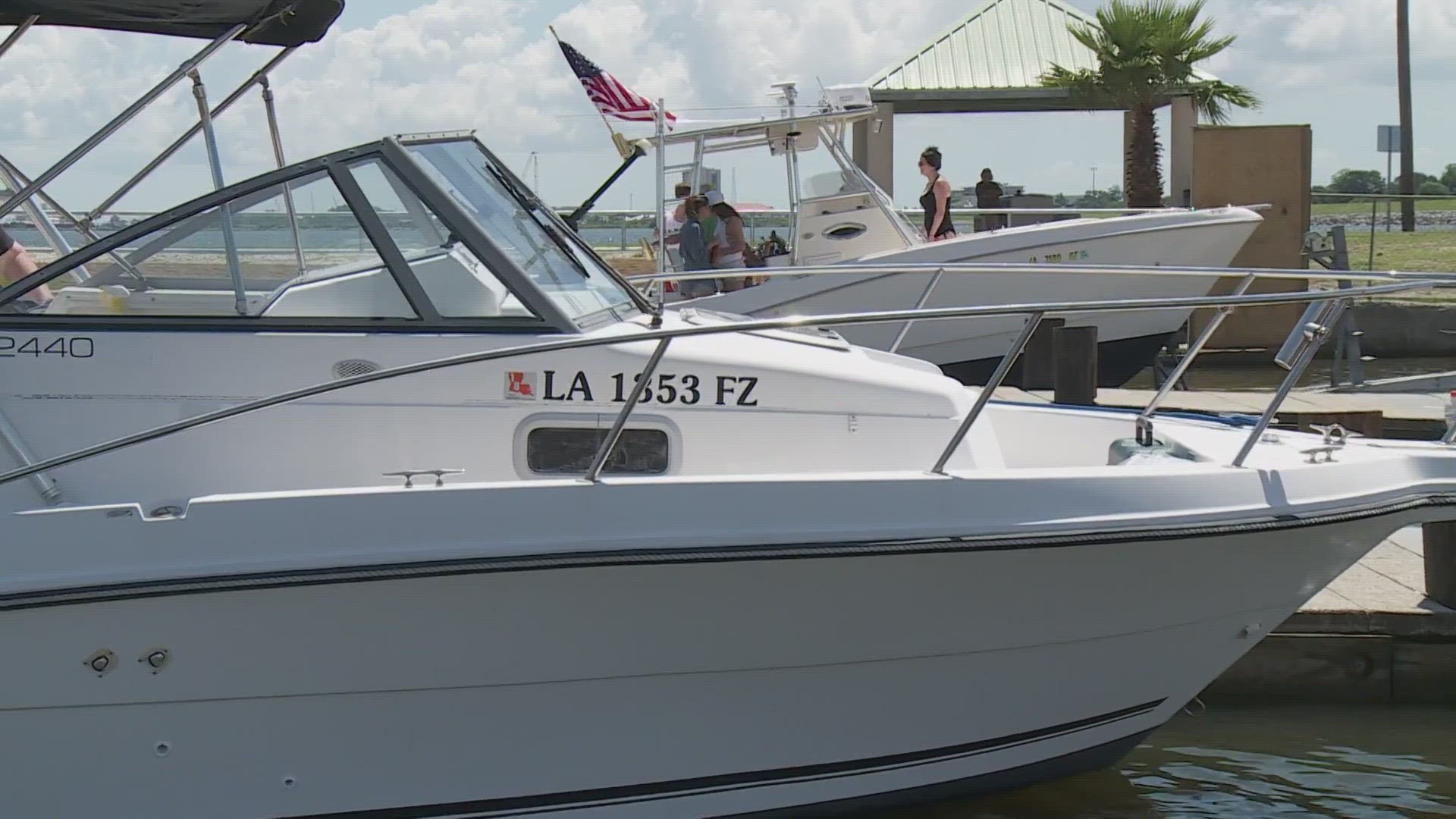NEW ORLEANS — As we get further into the summer months, many of you might be heading out on the water or even find yourself on a boat, but there are a few things the U.S. Coast Guard wants you to know before you head out.
Every year hundreds of people across the country lose their lives while out on the water. According to the Coast Guard, alcohol is one of the top factors in fatal boating incidents, so it is recommended that you put the cold ones down if you're driving the boat. Paul Barnard, the 8th Division Recreational Boating Safety Coordinator, said, "It's best if passengers drink in moderation because if something goes wrong with the driver while you're out on the water, someone needs to take over."
Barnard has been spearheading boating safety initiatives for over 30 years now. On Memorial Day weekend, it's expected that more people will venture out onto the water, but before you do that, Barnard says there are a few things you should be mindful of. He said you should always check the weather and the marine forecast to make sure there aren't any advisories that you should be aware of. Inspecting your boat is also a must. The Coast Guard Auxiliary actually conducts those inspections for free.
"Having all your required equipment on board is not what saves lives. Surprisingly, it is having the knowledge to know how to actually use that equipment is what saves lives. Most boaters normally don't wear a person floatation device, the instance that you feel apprehension that something is going wrong, you have to put it on," said Barnard.
Keeping extra life vests, at least one fire extinguisher, a GPS signaling device, flair guns, a noise naming device like a whistle or blow horn, and keeping a marine radio is also a good thing to keep on hand. However, if you're riding in something a little more compact like a kayak or other paddle crafts, Barnard said you still need to take your safety seriously.
"You look at the small piece of plastic, and you don't really associate it with danger," Barnard said. "Simple fact of the matter is that when you go out on one of these, you are much more likely to fall overboard or capsize. That's the leading cause of fatalities in all recreational boating, capsizing, which is more likely to happen on one of these."
Due to how often these boats can turn over, Barnard said it's not a matter of if you will capsize; it's a matter of when. If you are going to ride in a paddle craft Barnard recommends that you practice this scenario with a friend, so you know what to do when it happens to you. Barnard said canoes or kayaks are considered boats, so they have much of the same requirements that regular vessels do.
► Get breaking news from your neighborhood delivered directly to you by downloading the new FREE WWL-TV News app now in the IOS App Store or Google Play.

